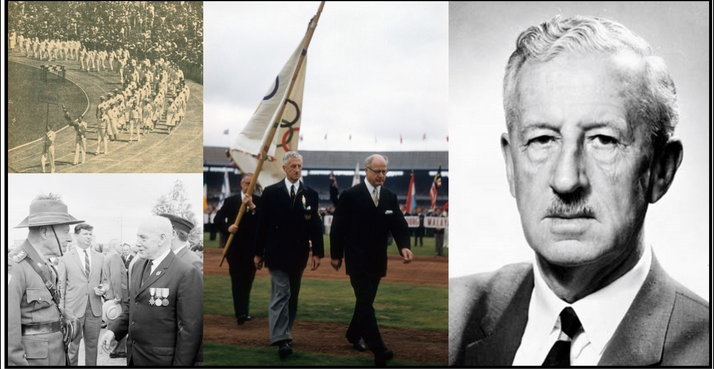
Wilfred Kent-Hughes – A remarkable Australian sportsmen and administrator
Born on 12 June 1895 was Wilfred Kent-Hughes the Australian team manager for the 1938 British Empire Games. Kent-Hughes was one of the most outstanding Australians during 1900s. He was an Olympian, Australian team manager, scholar, politician, sports administrator and Gallipoli war hero.
A Melbourne Grammar student Wilfred Kent-Hughes was accepted as a Rhodes Scholar in 1914, but didn’t take up study until after World War I. In August 1914, he enlisted with the Australian Imperial Force and served with the 3rd Light Horse Brigade. He landed in Gallipoli on April 25 and was wounded during that campaign. In 1917, he was awarded the Military Cross and remained in the war until 1919, reaching the rank of major.
After never competing in athletics outside of schools competition in Australia, suddenly in July 1920 he ran an Australian 400m hurdles record and six weeks later was running for Australia in the 1920 Olympics where he made the 400m hurdles semi-final. His times were five seconds faster than any other Australian that year and he was also nationally ranked in the 440 yards and 880 yards. In 1921 and 1922 he continued to compete in athletics, but also skied with the Oxford team in Europe and became the first Australian to ski competitively overseas.
After graduating from Oxford and marrying a wealthy American heiress in 1923, he returned to Australia where after a few years he entered politics in 1927.
In January 1938, he was appointed Australian Team Manager for the 1938 British Empire Games, held in Sydney.
While a serving member of Parliament, he enlisted in World War II in 1940 becoming a colonel. He spent about three years in prisoner of war camps in Asia, including Singapore’s Changi Prison where he was beaten and half starved. After the war he returned to politics and in 1951 became the Chairman of organizing committee for the Melbourne Olympics. He overcame squabbling and presided over a very successful 1956 Olympic Games. Kent-Hughes broke with tradition to charge for television and newsreel footage of the games which had previously been provided free of charge. He also followed a suggestion of 17-year-old John Ian Wing for athletes of all nations to parade together at the end of the games. He was knighted in 1957 and remained in parliament until his death in 1970.
